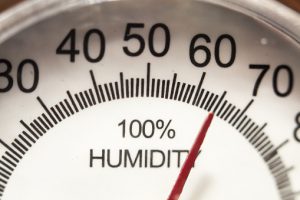 As we approach the peak of hurricane season in Hampton Roads, we’ll experience shifts in weather that can affect humidity not only in our neighborhoods, but in our homes. It’s important that humidity levels inside your apartment or house stay balanced. Too much humidity can cause structural damage, indelible stains on walls and windows, and mold. Little to no humidity is no better, as it may encourage you to run your HVAC harder than necessary.
As we approach the peak of hurricane season in Hampton Roads, we’ll experience shifts in weather that can affect humidity not only in our neighborhoods, but in our homes. It’s important that humidity levels inside your apartment or house stay balanced. Too much humidity can cause structural damage, indelible stains on walls and windows, and mold. Little to no humidity is no better, as it may encourage you to run your HVAC harder than necessary.
Balanced humidity is important for your family’s health and your home’s belongings. At Norfolk Air Heating, Cooling, Plumbing & Electrical, we’re here to answer your questions about HVAC installations that keep your living areas comfortable, and repair faulty equipment that disrupts the flow of indoor air. When you’re in between maintenance checkups and service, there are a few things you can do to ensure humidity stays at optimal levels, especially in times of inclement weather.
When It’s Too Humid
High humidity can be an issue in warmer months. When it starts to feel a bit sticky at home, you can adjust your air conditioner to an optimal cool temperature, and make sure your filters are clean so flow isn’t impeded. Use exhaust fans when cooking – and crack a kitchen window if possible – and try to limit use of hot water in the shower.
When It’s Not Humid Enough
If you sense a rise in static electricity at home during the winter months, in addition your skin feeling dry, it’s a sure sign of low humidity. Though you may think you don’t have to worry about mold or condensation, low humidity is not without issues that affect your health. To maintain comfort levels, you can bring in certain houseplants.
Ficus and ivy, for example, release moisture that evaporates into the air. Fall or winter is also a good time to invest in a whole-house humidifier that works with your HVAC system. Unlike a portable device, a whole house system doesn’t take up space in a livable room and lets you control humidity in multiple rooms.
If you have concerns about humidity imbalance in your Norfolk home, contact us today. We’re ready to answer your questions and help you determine if your Norfolk HVAC system needs repair.

